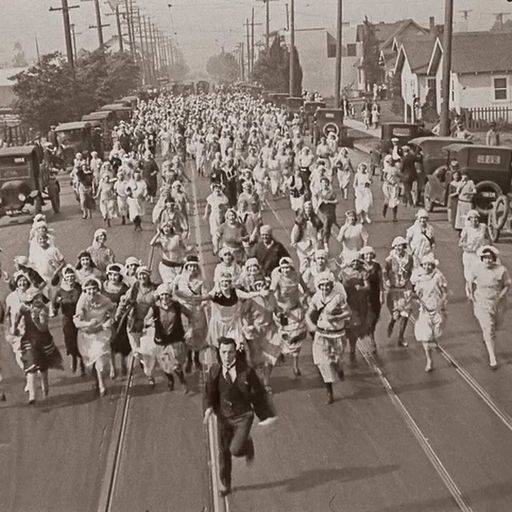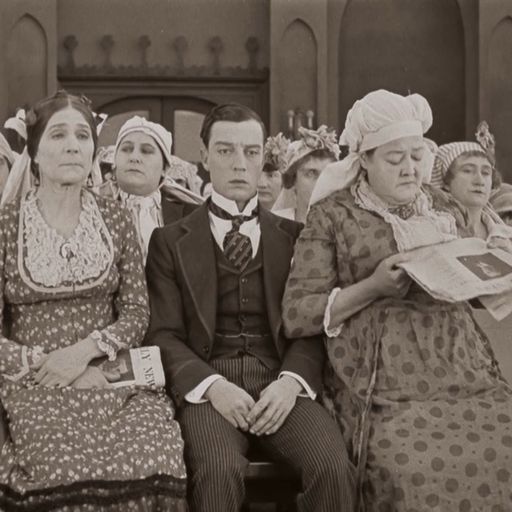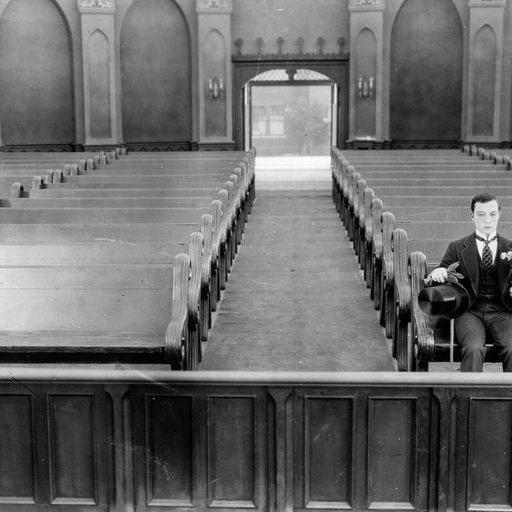Short and Sweet:
About
The fast-paced action comedy “Seven Chances” is the only Buster Keaton film that served as the basis for two remakes (1947 and 1999). The film is best known for its iconic final chase scene, where Keaton hilariously flees from an ever-increasing number of brides. Remarkably, Keaton performed many of the life-threatening stunts himself. As was often the case with Keaton, the shooting followed no fixed script but instead gave ample room for spontaneous visual humor and virtuoso spectacle.
For the most famous scene of the nearly 12-minute chase, where Keaton and a massive group of brides flee from rolling boulders, 1,500 papier-mâché boulders were specially created, ranging in size from a grapefruit to over 2.5 meters. Despite being made from papier-mâché, their weight of around 200 kilograms posed a real danger.
Jimmie Shannon and his business partner Billy are facing bankruptcy when Jimmie learns that he will inherit seven million dollars from his late grandfather—provided he is married by no later than 7 p.m. that same day. Jimmie must overcome his notorious shyness and proposes to his beloved Mary. However, she believes he only wants to marry for the money and turns him down.
Desperate financial straits force Jimmie to hastily propose to other female acquaintances, but he is often even more hastily rejected. His partner then places a marriage advertisement in the newspaper. Soon, hundreds of women, eager to marry a millionaire, flock to the church. When the sexton irritably turns the ladies away from the church, the fury of the would-be brides turns on Jimmie.
With hundreds of aggressive women in bridal gowns behind him, Jimmie runs through the streets of Los Angeles and flees into the surrounding area. In the process, he accidentally triggers a rockslide that eventually scares off the women. In the meantime, Mary is convinced of Jimmie’s genuine love. In the last minute, they exchange vows, thus securing Jimmie’s inheritance.
Musical Score
Register
Buster Keaton
(Actually Joseph Francis Keaton; born October 4, 1895, in Piqua, Kansas; died February 1, 1966, in Woodland Hills, California) was an American actor, comedian, and director. Along with Charles Chaplin and Harold Lloyd, Keaton was one of the most successful comedians of the silent film era. Because of his deliberately serious, stoic facial expression, he was called The Great Stone Face and The Man Who Never Laughed. Another trademark of his was his pork pie hat, a round, flat hat made of felt.
Thanks to his acrobatic talent, he made his career as a child in vaudeville before he began appearing in Roscoe Arbuckle’s films at the age of twenty-one. Three years later, he began producing his own very successful comedies. In 1924, The Navigator marked his breakthrough, establishing him as one of the most popular comedians of his time, alongside Chaplin and Lloyd.
Following the financial failure of his lavish film The General, Keaton became an actor at MGM in 1928. In 1933, now struggling with alcoholism, he was fired due to ongoing conflicts with the company’s management and faded into obscurity. In the 1950s, there was a revival and appreciation of his technically innovative silent film comedies, which are now considered some of the most important works in film history.



